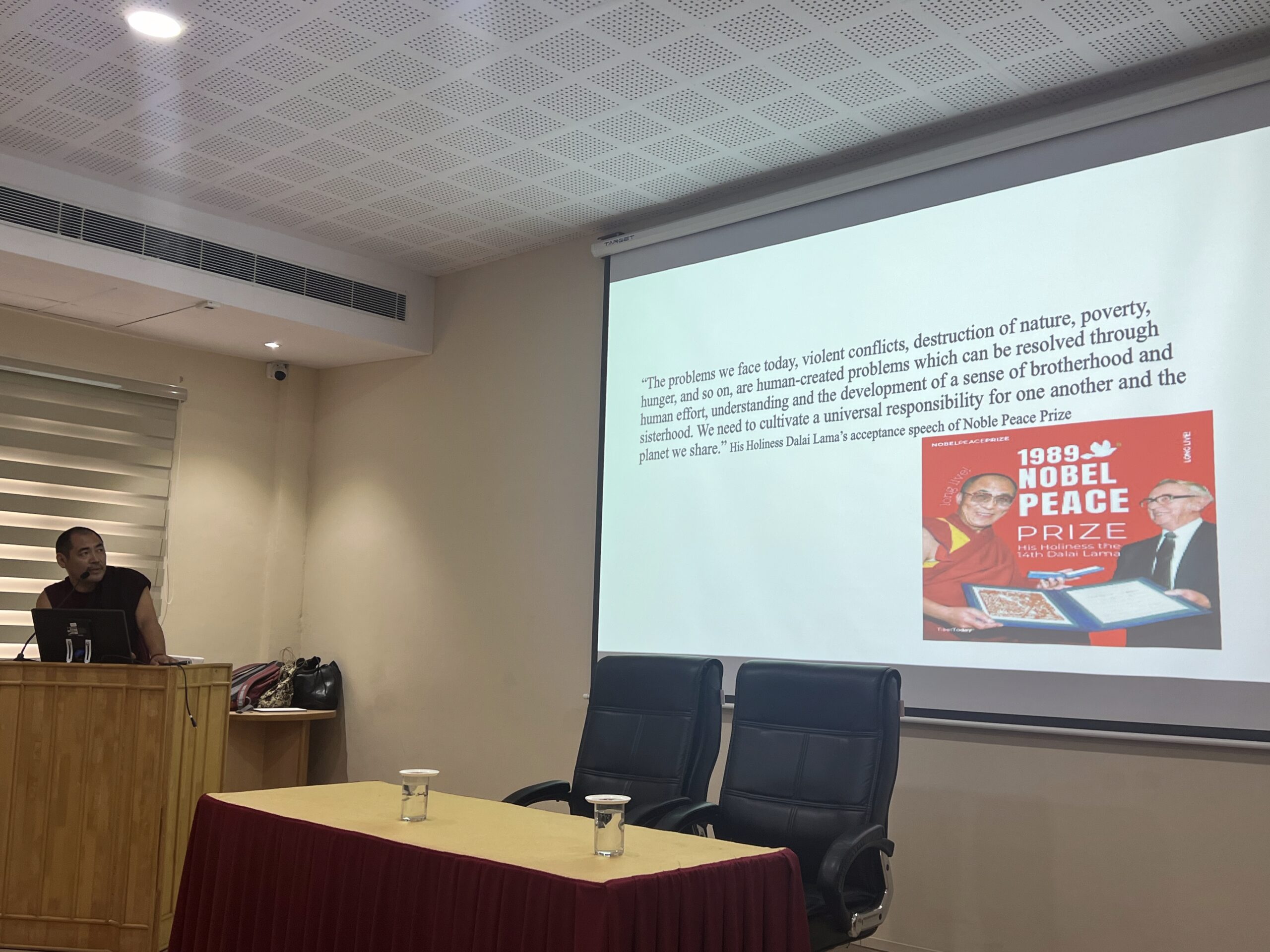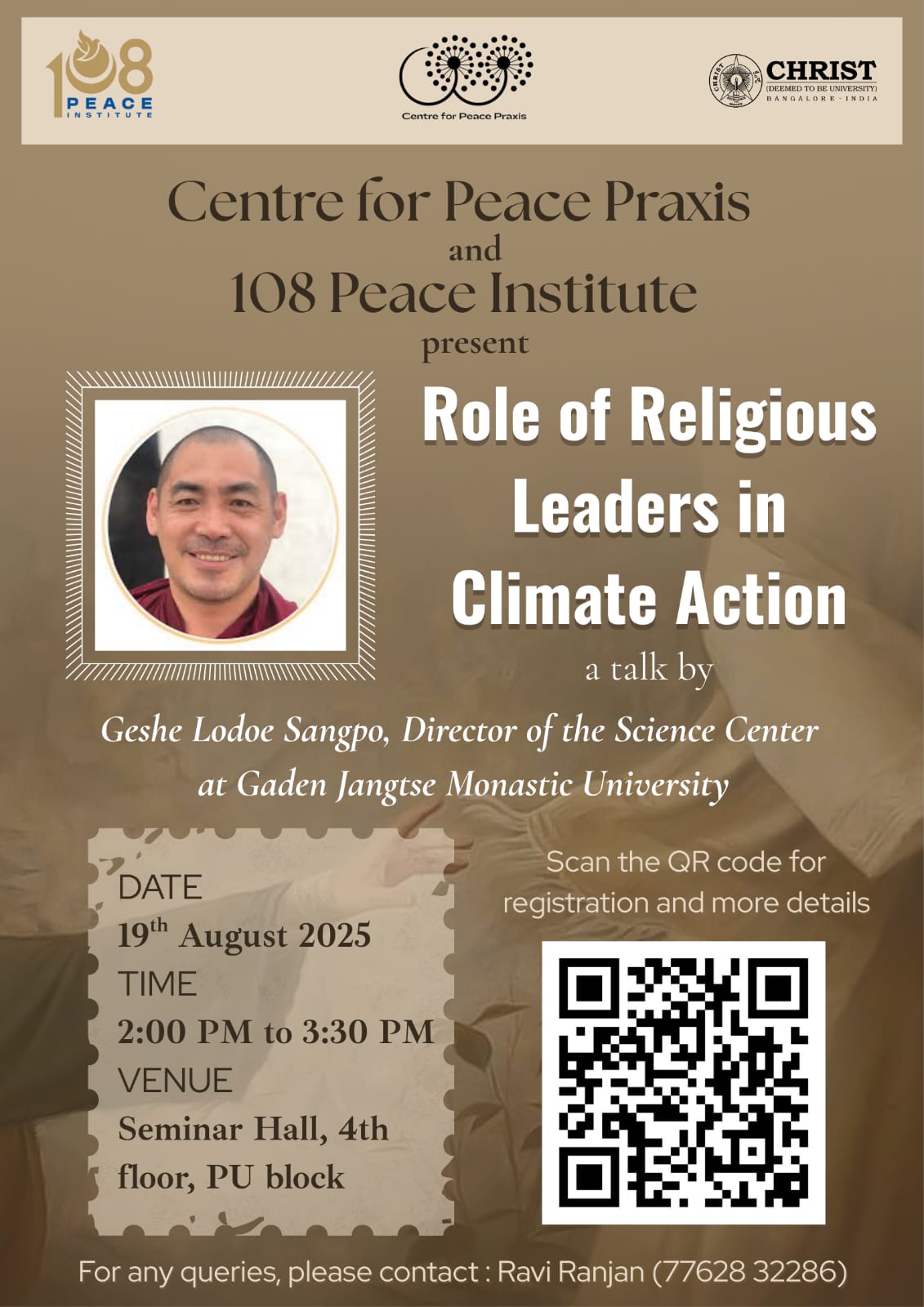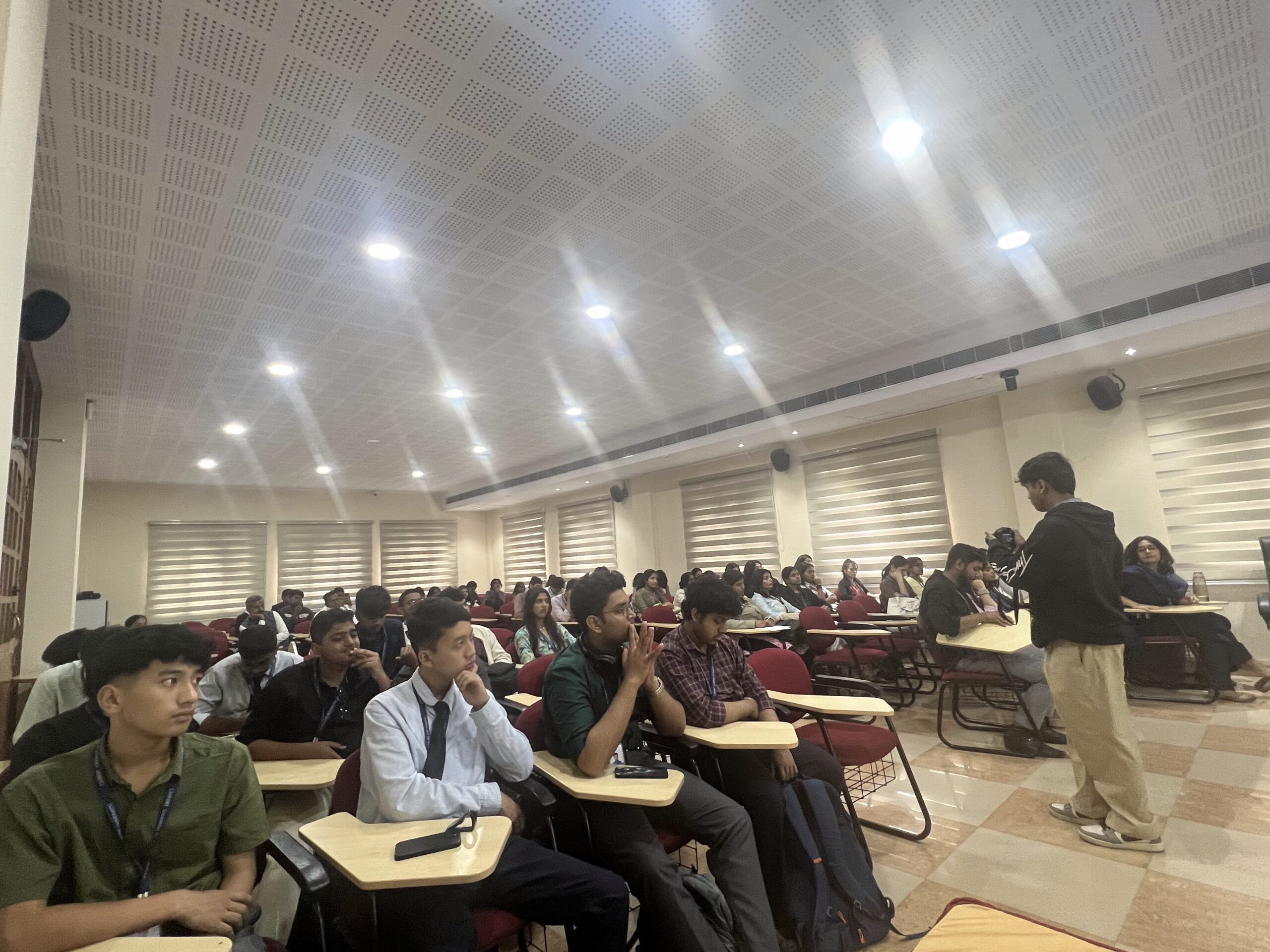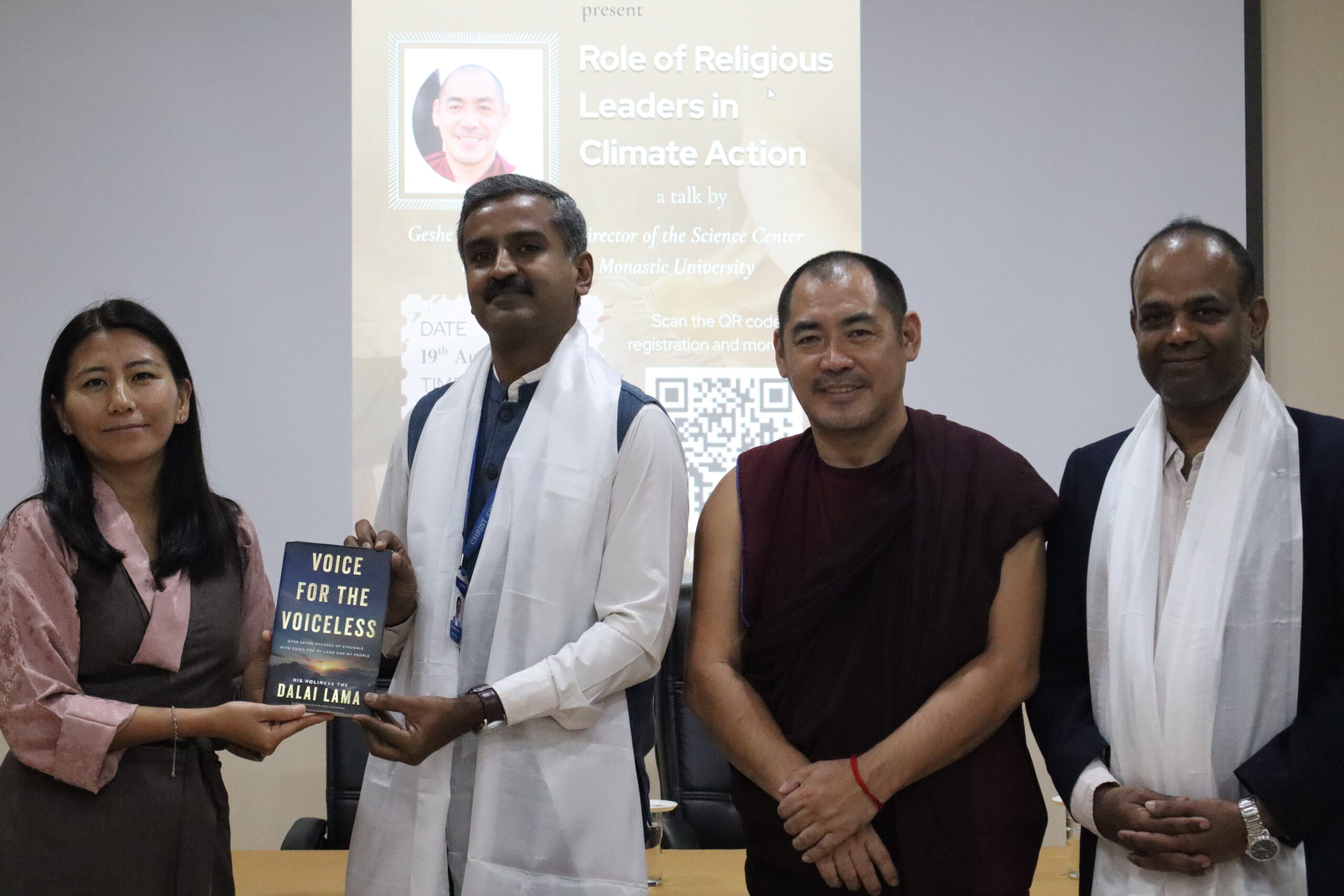August 19, 2025: In response to the escalating climate crisis, 108 Peace Institute in collaboration with Center for Peace Praxis hosted a lecture session on “The Role of Religious Leaders in Climate Action” at Christ University, Bangalore. The lecture session featured Geshe Lodoe Sangpo, Director, Science Center, Gaden Jangtse Monastic University.
The session began with a welcome address from Dr. Padmakumar M.M., Department of Media Studies, underscoring the urgency of the topic. He remarked on the alarming rise in global temperatures over the past few years, linking it to unprecedented heatwaves, devastating floods, and uncontrollable wildfires.
Geshe la opened the session with reflections on the Buddha’s life, illustrating his deep connection with nature. Born under the sal trees of Lumbini Garden, the Buddha attained enlightenment beneath the Bodhi tree in Bodh Gaya. His first teaching was delivered in the Deer Park at Sarnath, and he passed away under the trees in Kushinagar.
Throughout the address, Geshe la drew from ancient teachings that advocate living in balance with nature. Core Buddhist values such as Ahimsa (non-harming) were highlighted—encouraging people to avoid harming insects, plants, and other life forms, especially during times of natural abundance. In addition, Buddhist monastic life was presented as a model of simplicity and sustainability: minimal possessions, reduced movement, shared resources, and deep dedication to inner liberation over material gain.
Geshe la further shared the environmental vision of His Holiness the 14th Dalai Lama, who has been a long-standing advocate for planetary well-being. Referencing the Dalai Lama’s 1989 Nobel Peace Prize acceptance speech, Geshe la reminded the audience of the need to “cultivate a universal responsibility for one another and the planet we share.” He also highlighted His Holiness the Dalai Lama’s call for environmental education to be a global priority. Quoting from Our Only Home: A Climate Appeal to the World, Geshe la stated: “Environmental education means learning to maintain a balanced way of life.” This, he stressed, goes beyond classroom learning—it calls for a transformation of values and daily habits.
The lecture broadened to include ecological teachings across world religions, showing how each tradition carries a call for stewardship: In Christianity, the Earth is viewed not just as a resource but as a sacred gift from the Creator. Humanity is seen as a steward—managing creation with reverence and responsibility. Hinduism regards the Earth (Bhumi Devi) as divine, with rivers like the Ganges, mountains like the Himalayas, and trees like the Peepal considered sacred. Islam teaches that humans are khalifah (guardians) of the Earth, responsible for avoiding waste (israf), preserving balance (mīzān), and preventing corruption (fasād). Judaism, through traditions like Tu BiShvat—the New Year of the Trees—encourages planting trees, ecological reflection, and environmental education rooted in spiritual growth.
Emphasizing the role of religious leaders, Geshe la noted their unique ability to guide personal behavior and influence collective action. As the climate crisis deepens and ecological destruction accelerates, Geshe la indicated that interfaith gathering offers hope—reminding the world that religion, far from being irrelevant, holds the ethical and spiritual resources needed to lead humanity back into harmony with the Earth. He urged religious leaders around the globe to take a more active and urgent role in addressing the environmental emergency. “Spirituality and religion are not just relevant—they are essential in shaping how we respond to environmental destruction” Geshe la said.
In his closing remarks, Geshe la called for a return to mindful living and conscious consumption. “In order to ensure a more peaceful world and a healthier environment, we must stop pointing fingers,” he said. “If even one person becomes more compassionate and conscious, it will ripple outwards. This is how we begin to change the world.”
The session saw the participation of around 60 students and faculty members from various departments across Christ University. It concluded with a vibrant Q&A session, where attendees engaged in thoughtful dialogue on the intersection of faith, sustainability, and individual responsibility in addressing the climate crisis.



